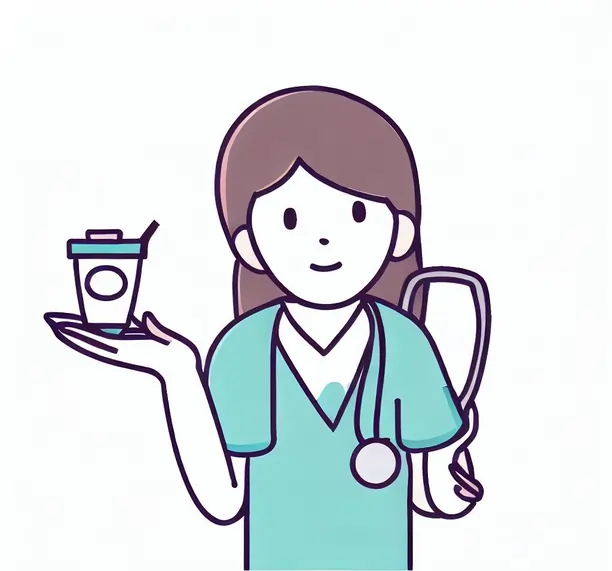Advanced Nursing Procedures: A Comprehensive Guide for Tomorrow's Nursing Professionals

The Expanding Roles of Nurses in Global Health
Nurses are often the unsung heroes at the frontlines of global health challenges, their roles extending far beyond traditional caregiving. From spearheading the containment of infectious diseases like Ebola in under-resourced environments to delivering maternal care in isolated villages, nurses provide crucial, life-saving interventions. They are also instrumental in orchestrating public health measures during pandemics, conducting tests, administering vaccines, and coordinating treatment. Their skill set is not just limited to clinical expertise; they're also adept at community engagement, educating the public, and implementing preventive measures. In a world grappling with diverse and complex health crises, the role of nurses as primary healthcare providers and coordinators is increasingly indispensable.

Low-Resource Settings
In low-resource settings, nurses often have to wear many hats—they're caregivers, pharmacists, and even lab technicians all rolled into one. Advanced nursing procedures such as wound care, fluid resuscitation, and even minor surgical tasks may fall under their domain. They often work in under-equipped facilities where they become adept at improvisation, making do with limited supplies to offer the best care possible.
During Pandemics
The COVID-19 pandemic has illuminated the indispensable role nurses occupy in navigating public health emergencies. Often the first healthcare professionals to interact with infected individuals, they spearhead testing, triage, and initial treatment measures. Their expertise extends beyond basic care; they are equipped with advanced skills crucial for crisis management. Nurses proficiently operate mechanical ventilators, manage complex infection control protocols, and offer psychological first aid to patients and families. These advanced competencies are not just supplementary but pivotal in efficiently mitigating the spread of the virus, managing critically ill patients, and alleviating the psychological toll of the pandemic. Their multi-faceted role is integral to the healthcare system's resilience and effectiveness.
Humanitarian Crises
In the face of natural disasters, armed conflicts, or refugee crises, the expertise and adaptability of nurses are severely tested. In such challenging humanitarian settings, they often operate under resource constraints and extreme stress, making their advanced skills invaluable. Nurses in these environments handle a wide array of critical cases, ranging from trauma injuries to infectious diseases, and even malnutrition among vulnerable populations. The absence of ideal conditions—whether it's a lack of medical supplies, extreme weather, or ongoing conflict—necessitates innovation and improvisation. Advanced nursing procedures become not just useful but vital, often making the difference between life and death. The resilience and versatility of nurses are crucial assets in these high-stakes situations.
Advanced Nursing Procedures: Techniques, Tips, and Best Practices
After highlighting the multifaceted roles nurses fulfill in varying healthcare contexts—from global health crises to humanitarian emergencies—it's essential to explore the advanced nursing procedures they frequently execute. These procedures are not simply routine but are specialized skills requiring dedicated training and expertise. Whether it's managing central lines, operating mechanical ventilators, or administering complex wound care, these advanced tasks serve as the bedrock of quality healthcare. The ability to perform these procedures efficiently can dramatically impact patient outcomes and healthcare system efficacy. For nurses, mastering these skills is not an optional luxury but a professional imperative, enabling them to meet the challenges of a dynamically evolving healthcare landscape.
Central Line Management
The insertion and management of a central venous catheter (CVC) are critical procedures in advanced nursing practice, often pivotal in delivering life-saving treatments like fluid resuscitation, parenteral nutrition, or medication administration. Performing this procedure demands a high level of technical skill and a steadfast commitment to sterile technique.
- Technique: Inserting a CVC involves multiple steps, from patient positioning and vein selection to needle insertion and catheter placement. Each step must be executed with precision to avoid complications like arterial puncture or pneumothorax. The procedure's success heavily depends on maintaining a sterile field to minimize contamination risks.
- Tip: Wherever possible, utilize ultrasound guidance during the procedure. Ultrasound provides real-time visualization of the vein, reducing the chances of incorrect placement. It's equally important to adhere to aseptic techniques meticulously, including skin preparation with antiseptics and the use of sterile drapes, gloves, and gowns.
- Best Practice: Given the complexity and risks associated with CVC insertion, periodic training sessions and competency checks are indispensable. Skills can atrophy over time or become outdated as new techniques and guidelines emerge. Simulation-based training or hands-on workshops can provide a controlled environment for nurses to hone their skills and receive constructive feedback.
Mechanical Ventilation
Management of mechanically ventilated patients is an intricate aspect of advanced nursing practice, requiring specialized skills and multidisciplinary coordination. This process is not a "set it and forget it" operation but demands constant monitoring and adjustment to meet the patient's dynamic physiological needs.
- Technique: Managing mechanical ventilation goes beyond merely adjusting settings on the machine. Nurses are responsible for a thorough evaluation of lung mechanics, such as tidal volumes, airway pressures, and gas exchange, to tailor the ventilator settings. Additionally, they monitor weaning parameters like respiratory rate and muscle strength to assess when a patient is ready to transition off mechanical support.
- Tip: To ensure optimal outcomes, nurses should keep up-to-date with current guidelines, such as the ARDSNet protocols for acute respiratory distress syndrome (ARDS). These guidelines offer evidence-based recommendations for ventilation strategies, which can be invaluable for making real-time clinical decisions. Staying current on the latest research and protocols is essential for delivering evidence-based care.
- Best Practice: Implementing regular multi-disciplinary rounds that involve physicians, nurses, and respiratory therapists is a highly effective way to optimize both patient care and ventilator settings. These rounds serve as platforms for shared decision-making, ensuring that each healthcare provider's expertise is utilized to its fullest. Regular consultation and communication among the team can lead to quicker identification of issues and more timely interventions.
Advanced Wound Care
- Technique: Advanced wound care techniques involve comprehensive assessment, meticulous cleaning, debridement when necessary, and proper dressing of the wound. Different wound types require specialized approaches; for instance, pressure ulcers might require redistributing pressure with specialized mattresses, while surgical wounds may necessitate closer monitoring for signs of infection.
- Tip: One pivotal concept in modern wound care is the importance of maintaining a moist environment for wound healing. Utilizing appropriate dressings like hydrocolloids, hydrogels, or alginates can help maintain the ideal moisture level. The choice of dressing material can vary depending on the wound's location, size, and condition, but selecting the right one can substantially expedite the healing process.
- Best Practice: For complex or hard-to-heal wounds, implementing a specialized wound care team can be a game-changer. This team typically consists of nurses with advanced wound care training, physicians, and sometimes specialists like podiatrists or vascular surgeons. A collaborative, multidisciplinary approach can help develop customized treatment plans that enhance patient outcomes while also being cost-effective.
Parenteral Nutrition
- Technique: Administering parenteral nutrition is a complex task requiring meticulous preparation and sterile technique. The mixture typically includes proteins, carbohydrates, fats, vitamins, and minerals, customized to each patient's metabolic needs. Correct catheter placement, typically a central venous catheter, and the precise programming of infusion rates are critical steps to ensure effective and safe delivery.
- Tip: Vigilance in monitoring potential complications is key to successful parenteral nutrition management. Complications such as refeeding syndrome, which involves metabolic shifts that can lead to dangerous electrolyte imbalances, or hyperglycemia require immediate attention. Regularly assessing lab values and vital signs, as well as monitoring for symptoms like edema or unexpected weight changes, can help in timely identification of these issues.
- Best Practice: For optimal results, parenteral nutrition should not be a solo nursing endeavor but supervised by a multidisciplinary nutrition support team comprising physicians, pharmacists, and dietitians, in addition to nurses. This collaborative approach ensures that the patient's nutritional, medical, and pharmacological needs are holistically addressed, thereby improving outcomes and potentially reducing healthcare costs.
Future Directions
Advanced nursing procedures are ever-evolving, with ongoing research aimed at improving patient outcomes and healthcare efficiency. Simulation training, for instance, offers a safe environment for nurses to practice complex procedures, providing them the confidence and competence to perform when it counts. As healthcare systems continue to expand and face new challenges, the role of nurses is set to grow proportionately. Whether in global health settings, pandemics, or humanitarian crises, the need for skilled nurses who are well-versed in advanced procedures will remain a constant. Therefore, continuous education, training, and adherence to best practices are essential for the modern nurse aiming to make a difference in patient care and outcomes.
Conclusion
From basic care to advanced procedures, nurses are integral to healthcare delivery systems worldwide. Their role is particularly significant in challenging conditions such as low-resource settings, pandemics, and humanitarian crises. By mastering advanced nursing procedures, nurses not only elevate their own practice but also improve the quality of care for their patients. With the right techniques, tips, and best practices, nurses can continue to be the linchpin in healthcare delivery, rising to meet the challenges of an ever-changing healthcare landscape. For students of nursing, understanding these procedures and roles is not merely academic; it is a career imperative. The landscape of healthcare is changing rapidly, and being equipped with the most advanced skills and knowledge will set you on a path to becoming an invaluable asset to any healthcare team.